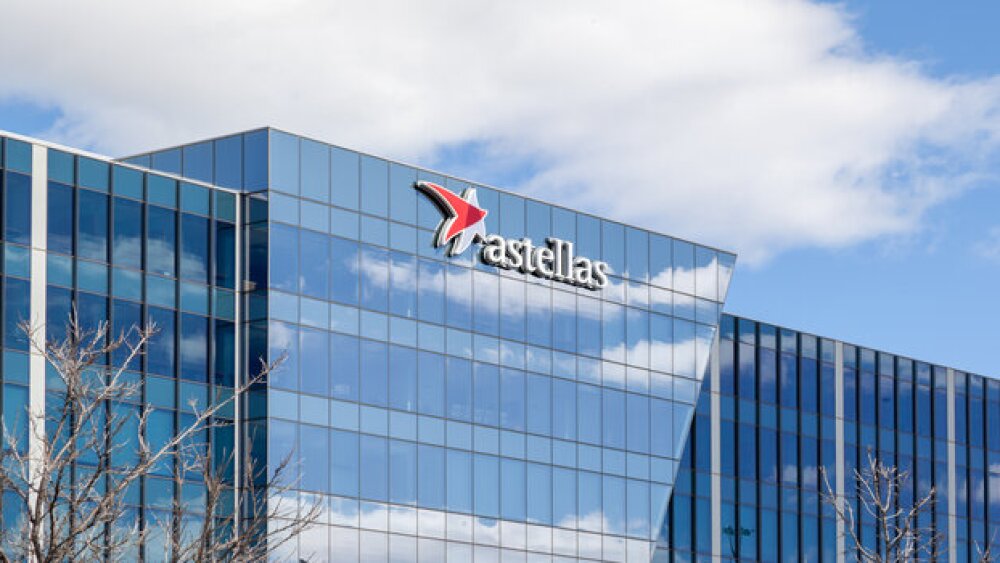The Japanese pharma contends that an analysis of the four deaths in its AT132 gene therapy clinical trial shows it is still viable as a potential treatment for a fatal, rare genetic disease.
Pictured: Astellas Illinois Headquarters/iStock, JHVEPhoto
Despite four pediatric patient deaths and an ongoing clinical hold by the FDA, new trial data released Wednesday by Astellas suggests its gene replacement therapy AT132 for X-linked myotubular myopathy is still viable as a potential treatment option.
A detailed publication in The Lancet Neurology revealed the four patients who died after treatment—three in 2020 and one in 2021—all had evidence of cholestasis prior to treatment, likely caused by their disease but exacerbated by Astellas’ gene therapy. The pre-existing liver disease in children with X-linked myotubular myopathy (XLMTM) was “largely unrecognized” when the study started, according to the journal publication. Their deaths prompted the re-examination.
The first three patients had received a higher dose. An FDA clinical hold was placed in June 2020 then lifted in December 2020 as the dosing was cut in half. The trial was again placed on hold following the fourth death and remains in place.
“Important issues related to liver health in participants with XLMTM receiving gene therapy have been identified and will continue to require careful evaluation,” Perry Shieh, the principal investigator for the ASPIRO trial, said in a statement.
Caused by variations in the MTM1 gene, XLMTM is a rare genetic disease present from birth that causes extreme muscle weakness. Due to the severe breathing problems that develop, patients with XLMTM usually survive only into early childhood. Regular motor milestones are delayed or never achieved and supportive care are the only options, including ventilators and feeding tubes.
Astellas’ AT132 is an adeno-associated viral vector gene therapy designed to replace the mutated MTM1 gene to treat the devastating disease.
In the Astellas trial, 24 boys were dosed with AT132. All were ventilator-dependent and only three were able to sit independently for 30 seconds with no additional milestones achieved. By the data cutoff date, 16 participants—10 at the higher dose and 6 at the lower dose—had achieved ventilator independence and eight were able to walk independently. Several other motor milestones were also achieved. None of the 14 patients in the non-treated cohort were able to achieve ventilator independence.
With these results, Astellas contends AT132 could still be a viable treatment for the fatal disease.
“While we continue our efforts to address the ongoing clinical hold for ASPIRO, this publication serves to provide information that may guide efforts aimed at advancing promising therapies for XLMTM,” Richard Wilson, senior vice president of genetic regulation at Astellas, said in a statement.
In June 2023, Astellas announced an exclusive licensing deal with Kate Therapeutics for KT430, a next-gen gene therapy for XLMTM that utilizes a new MyoAAV capsid. The capsids are engineered to deliver therapeutic genes more effectively to muscles, at much lower doses of up to 250 times lower than what is needed with traditional AAVs like AT132. Animal studies showed MyoAAVs largely avoid the liver, potentially avoiding the serious adverse effects seen in the AT132 trial. The asset is currently in IND-enabling studies.
Kate Goodwin is a freelance life science writer based in Des Moines, Iowa. She can be reached at kate.goodwin@biospace.com and on LinkedIn.






